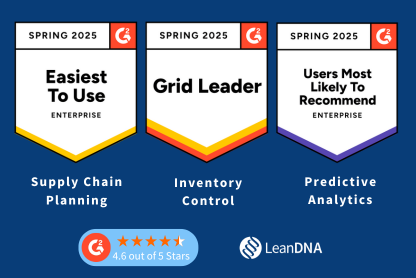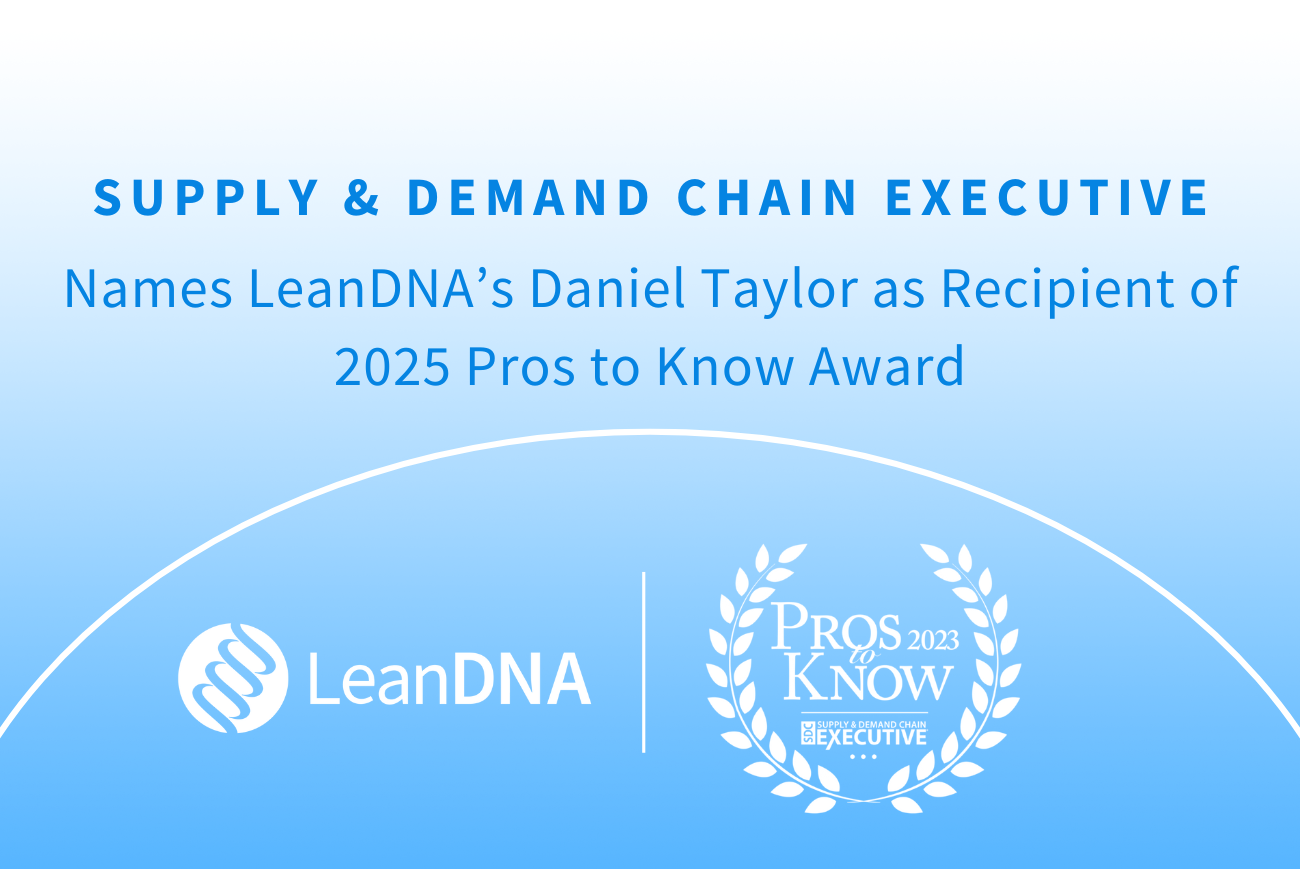Understanding How to Achieve Supply Chain Excellence
In today's fast-paced business landscape, the successful management of supply chains has become a critical factor in driving operational efficiency, cost reduction, and customer satisfaction. Simultaneously, the rapid advancements in artificial intelligence (AI) technologies have revolutionized various industries and have played a key role in the supply chain excellence of many leading manufacturers.
See more digital transformation success stories >>
When AI and supply chain teams join forces, they have the potential to create a formidable synergy that maximizes results and unlocks new opportunities for organizations. In this blog, we will explore how AI and manufacturing teams can collaborate to optimize operations, streamline processes, and achieve supply chain excellence.
Ways Manufacturing Teams Can Leverage Automation to Improve Efficiency & Performance
Enhancing Demand Forecasting and Planning
Accurate demand forecasting is the backbone of an effective supply chain. By leveraging AI-powered predictive analytics, supply chain teams can gain valuable insights into historical data, market trends, customer behavior, and external factors.
AI algorithms can process vast amounts of information quickly and generate accurate demand forecasts, empowering supply chain teams to optimize inventory levels, minimize stockouts, and improve customer satisfaction. By collaborating closely with AI experts, supply chain teams can fine-tune algorithms, integrate real-time data, and continuously improve forecasting accuracy.
Intelligent Inventory Management
Managing inventory efficiently is a crucial aspect of supply chain operations. AI can help supply chain teams optimize inventory levels by analyzing historical sales data, lead times, and market trends. By incorporating machine learning algorithms, AI systems can dynamically adjust inventory levels, automate replenishment processes, and reduce carrying costs.
Supply chain teams can work alongside AI specialists to define inventory policies, set threshold values, and develop automated alerts for proactive decision-making, ensuring optimal inventory turnover rates and minimizing excess stock or shortages.
Streamlining Logistics and Transportation
AI technologies offer tremendous potential for optimizing logistics and transportation operations. Intelligent route planning algorithms can consider multiple variables, such as traffic conditions, weather forecasts, and vehicle capacities, to create optimal delivery schedules. AI-powered optimization models can minimize transportation costs, reduce empty miles, and enhance overall fleet efficiency.
By collaborating with supply chain teams, AI experts can incorporate specific business requirements, such as delivery time windows, customer preferences, and service level agreements, to tailor AI algorithms to the unique needs of the organization.
Predictive Maintenance and Quality Control
AI-driven predictive maintenance enables supply chain teams to proactively identify equipment failures and potential bottlenecks, reducing downtime and improving overall equipment effectiveness (OEE). By analyzing real-time sensor data and historical performance patterns, AI algorithms can predict maintenance needs and recommend preventive actions.
Supply chain teams can work closely with AI specialists to define critical parameters, set up monitoring systems, and establish maintenance protocols that align with business objectives. Furthermore, AI can assist in quality control by analyzing data from various sources, identifying potential defects, and enabling early intervention to ensure product integrity.
Supplier Relationship Management
Collaboration between AI and supply chain teams can enhance supplier relationship management (SRM) by providing valuable insights into supplier performance, risk assessment, and market dynamics. AI algorithms can analyze supplier data, industry trends, and external factors to identify potential supply chain disruptions, mitigate risks, and optimize sourcing strategies.
By integrating AI-powered supplier evaluation tools with supply chain management systems, supply chain teams can make informed decisions regarding supplier selection, negotiation, and performance tracking, leading to improved supplier partnerships and enhanced overall supply chain resilience.
Empowering Manufacturing Teams to Achieve Supply Chain Excellence
In today's data-driven and interconnected world – collaboration between AI and supply chain teams is essential for maximizing results and achieving a competitive edge. By harnessing the power of AI technologies, supply chain teams can enhance demand forecasting, streamline inventory management, optimize logistics, improve maintenance practices, and strengthen supplier relationships.
However, successful collaboration requires close coordination, domain expertise, and continuous refinement of AI algorithms to align with the unique goals and challenges of the organization. By embracing this partnership, organizations can unlock the full potential of AI and revolutionize their supply chain operations, ultimately leading to improved efficiency, cost savings, customer satisfaction, and sustained success in an ever-evolving business landscape.



